Kenya election: William Ruto declared president amid chaotic scenes
Deputy President William Ruto was Monday declared the winner of Kenya's hard-fought presidential poll but the announcement was mired in controversy after several members of the election commission rejected the results.
Independent Electoral and Boundaries Commission (IEBC) chairman Wafula Chebukati said Ruto had won almost 7.18 million votes (50.49 percent) in the August 9 vote, against 6.94 million (48.85 percent) for his rival Raila Odinga.
"I stand before you despite intimidation and harassment. I have done my duty according to the laws of the land," Chebukati said, adding, "In accordance with the law, I... hereby declare that Ruto William Samoei has been duly elected as the president."
Shortly before his announcement, four out of seven IEBC commissioners said they could not recognize the results, raising rigging fears in the closely-watched poll in the East African political and economic powerhouse.
Ruto is a 55-year-old rags-to-riches businessman who had characterized the vote as a battle between ordinary "hustlers" and "dynasties" who had ruled Kenya since independence from Britain in 1963.
After the results were announced, he vowed to work with "all leaders" in Kenya.
"There is no room for vengeance," Ruto said, adding: "I am acutely aware that our country is at a stage where we need all hands on deck."
The outcome was a bitter blow for Odinga, the 77-year-old veteran opposition leader who weighted the ruling party behind him after forging a 2018 pact with outgoing President Uhuru Kenyatta in a stunning shift of allegiances.
The days-long wait for the outcome of the race had already set the East African nation on edge. But in a shock announcement, IEBC vice chair Juliana Cherera told reporters that she and three of her colleagues could not "take ownership of the result that will be announced," calling the process "opaque."
"However we have an open door that people can go to court and because of the same we urge Kenyans to be peaceful because the rule of the law is going to prevail," she added.
As confusion reigned, scuffles broke out at the IEBC's heavily guarded national tallying center in Nairobi, where some people were seen throwing chairs shortly before Chebukati's announcement. Although last Tuesday's poll passed off largely peacefully in the regional political and economic powerhouse, memories of vote-rigging and deadly violence in 2007-08 and 2017 still loom large.
The IEBC had been under intense pressure to deliver a clean election after it faced stinging criticism for its handling of the 2017 election.
Disenchantment
Kenyans voted in six elections to choose a new president as well as senators, governors, lawmakers, women representatives, and some 1,500 county officials.
Kenyatta, the 60-year-old son of the first post-independence president, has served two terms and could not run again.
The winner of the presidential race needed to secure 50 percent plus one vote and at least a quarter of the votes in 24 of Kenya's 47 counties.
Observers say that with the race so close, an appeal to the Supreme Court by losing candidate Odinga is almost certain, meaning it could be many weeks before a new president takes office.
Turnout on polling day was lower than expected at around 65 percent of Kenya's 22 million registered voters, compared with about 78 percent in the last election in 2017.
Observers blamed disenchantment with the political elite, particularly among young people in a country battling a severe cost-of-living crisis and a punishing drought that has left millions hungry.
Lawyer David Mwaure -- one of the four presidential candidates along with former spy George Wajackoyah -- conceded on Sunday, endorsing Ruto, whose party won a key gubernatorial race when Johnson Sakaja secured control of Nairobi, Kenya's richest city.
In a historic first for Africa, the result of the 2017 election was annulled by the Supreme Court after Odinga challenged the outcome.
Dozens of people were killed in the chaos that followed the election, with police brutality blamed for the deaths.
Kenyatta went on to win the October rerun after a boycott by Odinga.
The worst electoral violence in Kenya's history occurred after a disputed vote in 2007 when more than 1,100 people were killed in bloodletting between rival tribes.
Violent protests erupt in parts of Kenya over vote
Violent protests erupted in Raila Odinga's stronghold of Kisumu and parts of Nairobi after he lost his fifth bid for Kenya's presidency on Monday, with angry demonstrators alleging vote-rigging as police fired tear gas to disperse them.
Odinga, 77, a veteran opposition politician now backed by the ruling party, has not spoken in public since the results were announced but has accused his opponents of cheating him out of victory in the 2007, 2013, and 2017 presidential elections.
The 2007 polls in particular -- which many independent observers also considered deeply flawed -- cast a long shadow over Kenyan politics, unleashing a wave of ethnic violence that pitted tribal groups against each other and cost more than 1,100 lives.
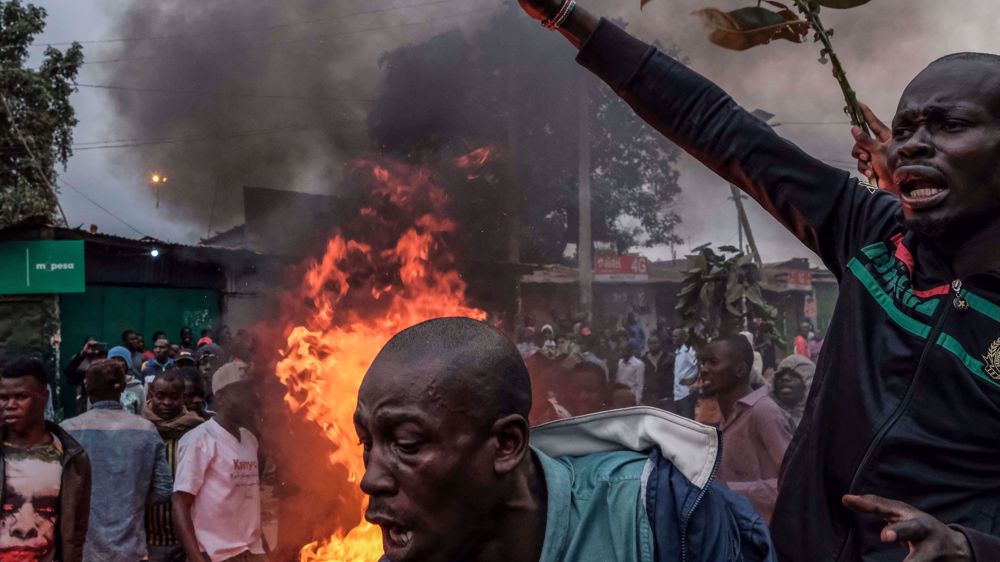
As news of the results filtered through to Kisumu, large numbers of protesters congregated on a roundabout in the lakeside city, throwing stones and setting tires on fire as they blocked roads with broken rocks.
"It was not free and fair. We were cheated," 26-year-old Odinga supporter Collins Odoyo told AFP as he rushed off to join the crowd, barefoot and with a vuvuzela horn strapped across his back.
'You can't steal from us
"The government must listen to us. They must redo the election," said Isaac Onyango, 24, his eyes streaming as police tried to defuse the demonstration with tear gas.
"You can't steal from us!" shouted a young man in a balaclava wielding a club.
As tensions spiked following the disputed outcome of the August 9 vote, 55-year-old president-elect William Ruto vowed to work with "all leaders."
"There is no room for vengeance," he said. "I am acutely aware that our country is at a stage where we need all hands on deck."
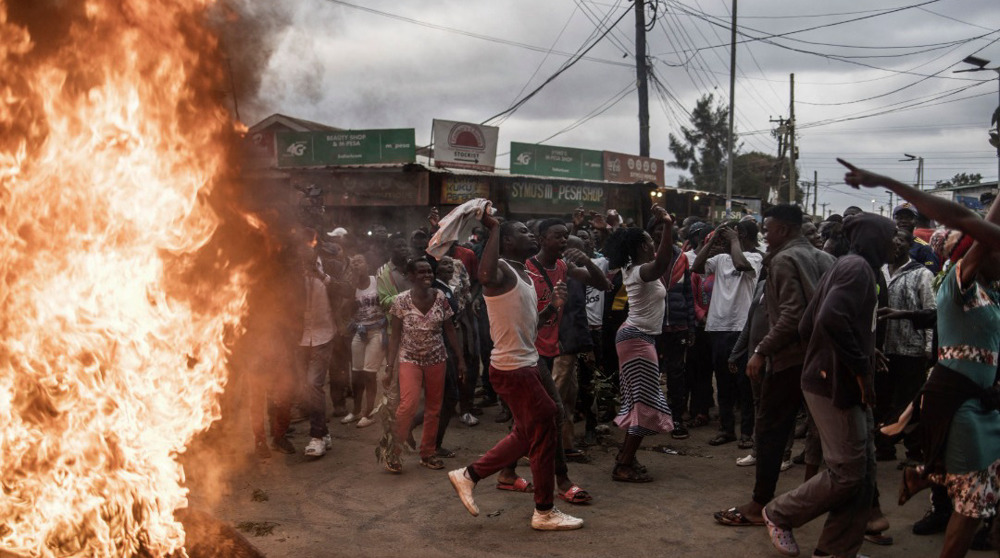
AFP correspondents reported that police fired live rounds as protests erupted in the Nairobi slum of Mathare where Odinga is popular.
And across town in Kibera, one of Nairobi's largest slums, young supporters, who refer to him as "Baba" or "father" in Swahili, demanded a re-run as they hurled stones.
"Baba's vote has been stolen," said motorcycle taxi driver Emmanuel Otieno.
"Stop lying to Kenyans, we know Baba won," said another protester, Eliud Omolo, waving a banner supporting Odinga.
(Source: AFP)
Gaza faces imminent famine as people starving to death: UN warns
North Korea to stand up to sanctions, bolster military power: Official
Hezbollah says 2,000 Israeli forces killed, injured in operations since Gaza war began
War of wills: Iran army chief vows crushing response to any aggression
April 24: ‘Axis of Resistance’ operations against Israeli occupation
Tabas sand defeats US military
'US secretly sent long-range ATACMS missiles to Ukraine in recent weeks'
Iran: Awakened world public opinion determined to stop Israel war crimes


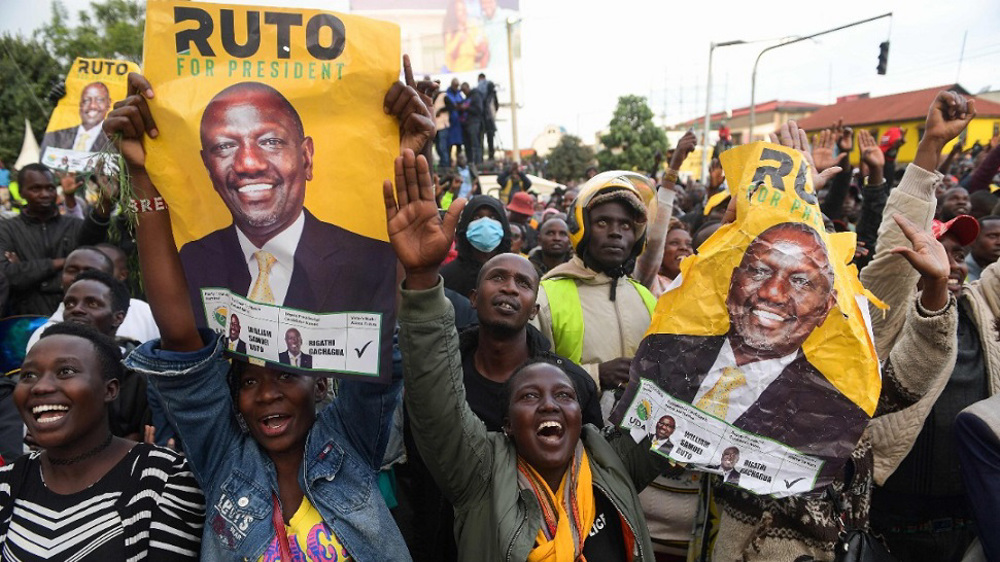
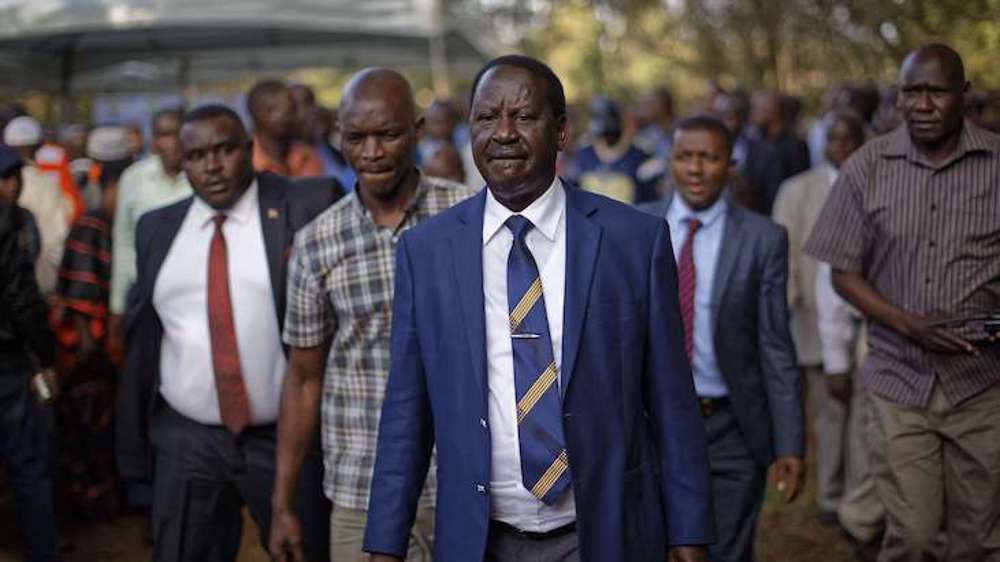
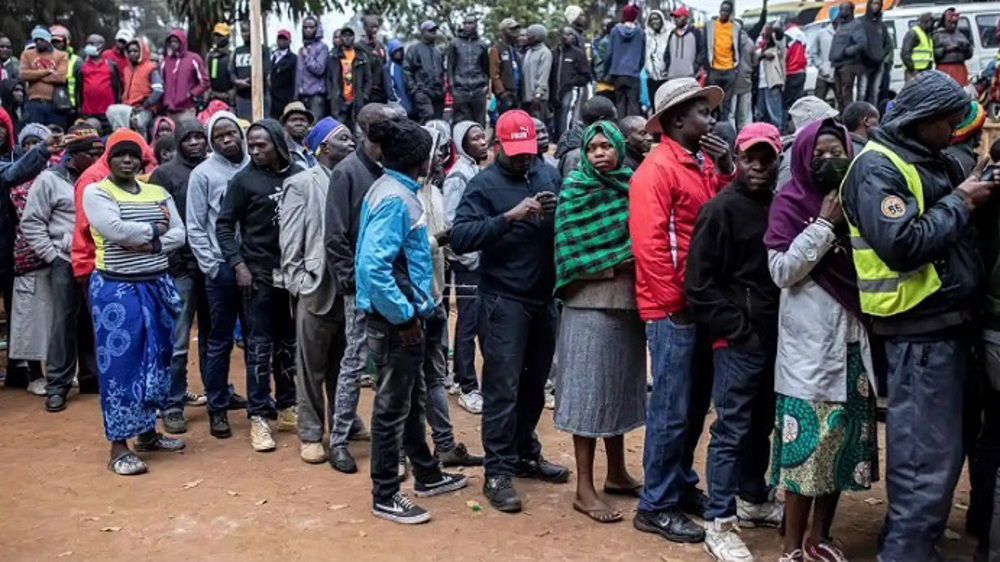

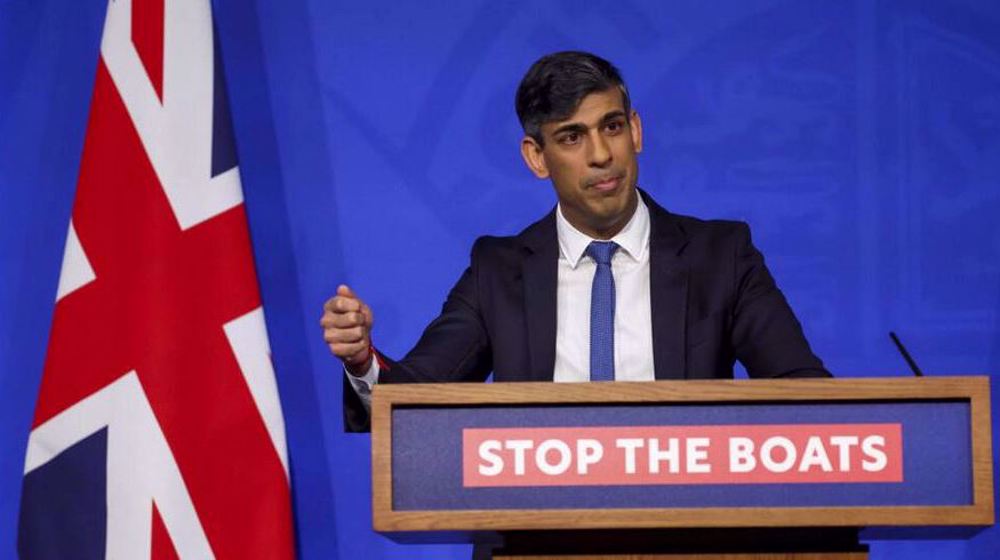





 This makes it easy to access the Press TV website
This makes it easy to access the Press TV website